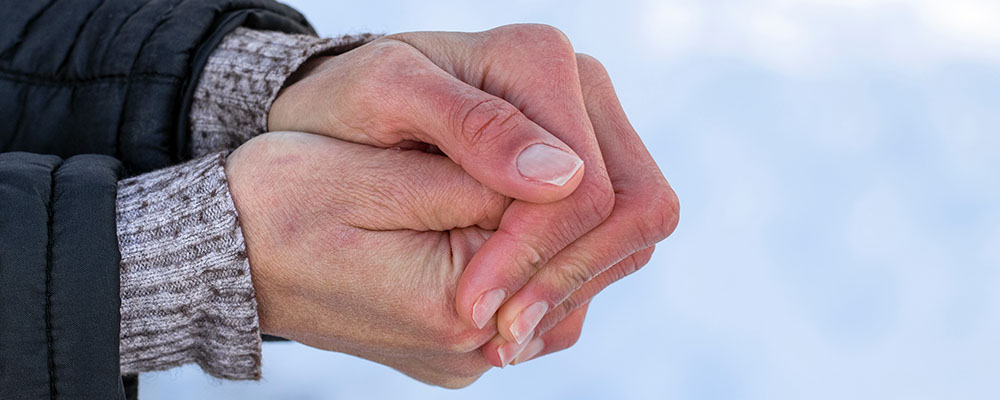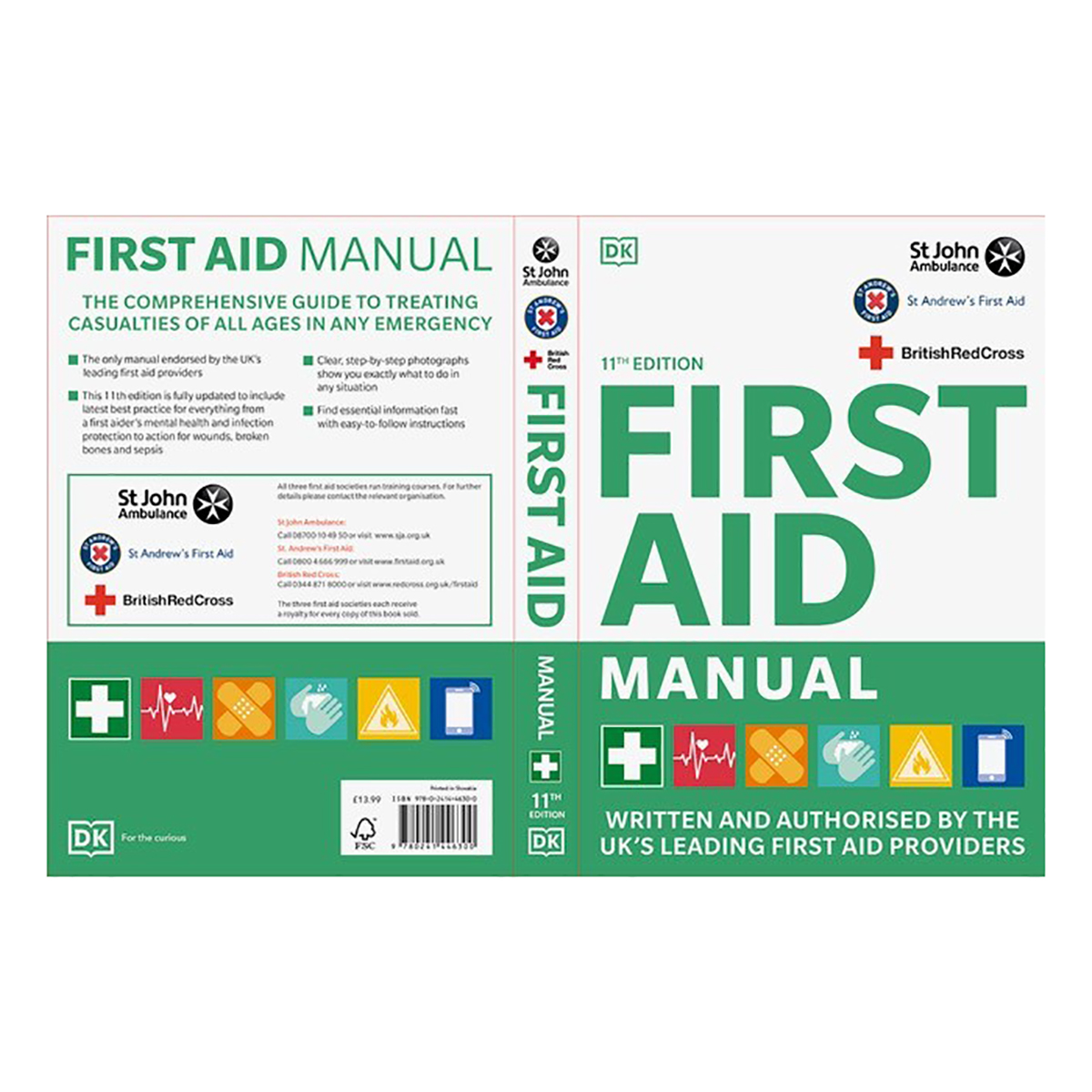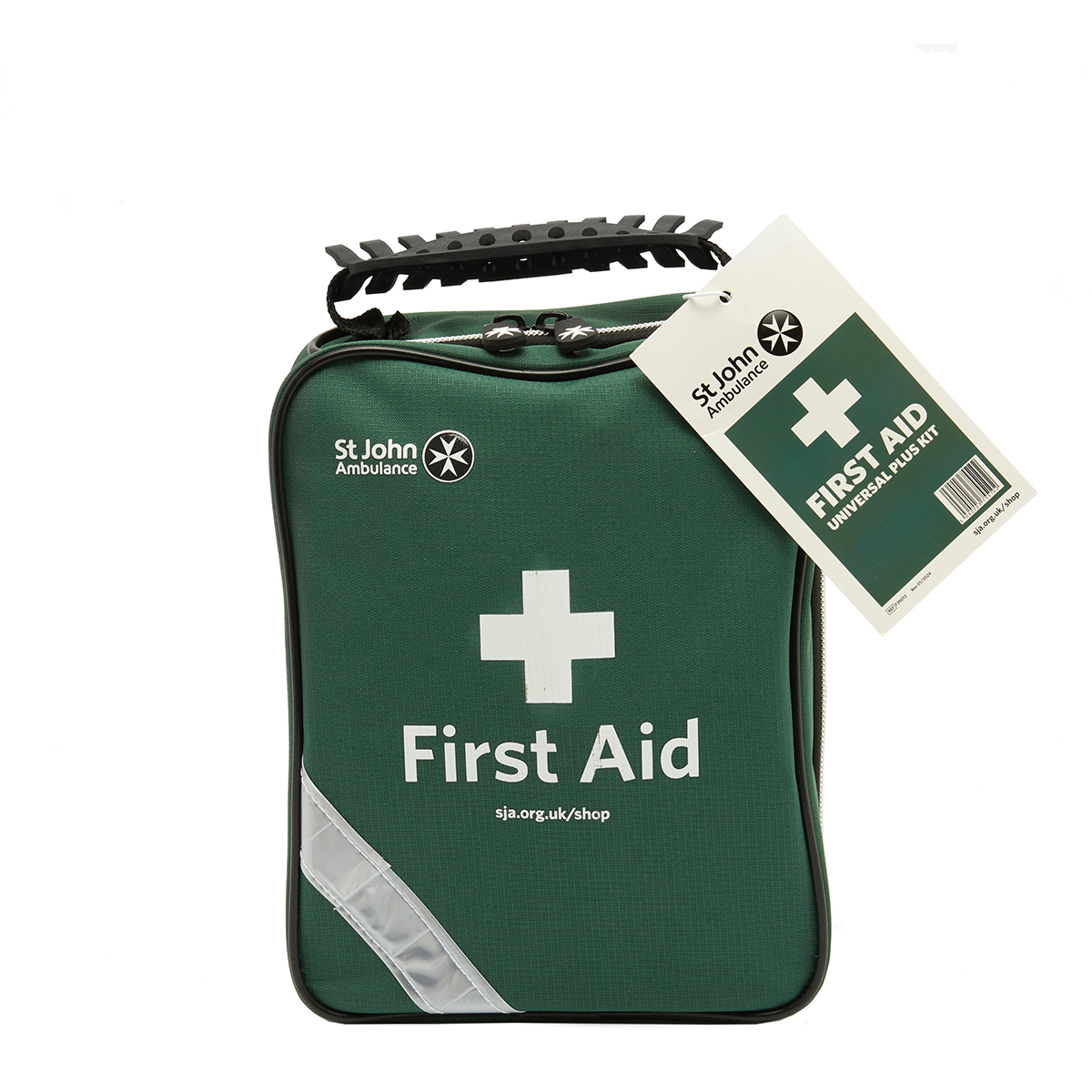Published: 17th November 2025.
Last updated: 17th November 2025.
Author: Cara Sherratt.
Contents

Even in a country considered "mild" in temperature like the UK, hypothermia still remains a real danger due to the wet, windy and unpredictable weather of the British Isles. The UK records hundreds of hypothermia-related deaths annually, so it is beneficial to understand the causes and treatments of this condition.
Hypothermia happens when a person's body temperature drops below 35°C, whereas a normal temperature sits at about 37°C, and it can be life-threatening. Not only this, but hypothermia can become life-threatening, quickly. So, it is important to treat someone with hypothermia straight away and have the skills and knowledge to act fast.
Find out what to look for and discover 5 ways you can avoid hypothermia this winter.
Signs and symptoms
What to look for in adults:
- shivering, cold and pale with dry skin
- unusually tired, confused and can display irrational behaviour
- reduced level of response
- slow and shallow breathing
- slow and weakening pulse
Find out more on how to treat hypothermia by viewing the relevant topic on our First Aid Fast App, or click here to read more.
How You Can Avoid Hypothermia This Winter
1. Limit Exposure to Cold & Dress Appropriately for Temperatures
Ensure you limit prolonged exposure to cold temperatures and damp weather during the wintertime. If you are indoors, ensure homes are heated properly and look out for vulnerable people such as children and the elderly, making sure that everyone is spending limited time in cold weather, or are dressed appropriately for the inside and outside temperatures.
Layers of clothing and specific thermal items can help to hold body heat, along with gloves, scarves, hats and accessories such as hot water bottles and hand warmers.
2. Protect Yourself Against Wet and Windy Conditions
For someone to get hypothermia, temperatures don’t have to be below freezing. Poor weather conditions such as wind and rain during winter can significantly impact on body temperature and increase heat loss. The UK’s climate often displays periods of windy, damp weather which speeds up heat loss through wind chills or wet clothes.
Wet clothes can be particularly dangerous if spending an elongated amount of time outside. Wet clothing can quickly lead to hypothermia if not properly dried or if the moisture cools or freezes.
3. Heat and Maintain Your Home
When the temperature drops in the UK, it is essential to properly heat and maintain your home, especially for those living in older, draughty buildings or in properties that require further maintenance. If possible, try to carry out home improvements, boiler checks and chimney maintenance before the start of winter.
Inadequate insulation and poor heating can allow cold air to seep in, quickly lowering indoor temperatures to dangerous levels. Simple steps such as sealing draughts, using thermal curtains and layering clothing indoors can make a huge difference in maintaining a safe body temperature and preventing hypothermia.
4. Take Proper Precautions During Outdoor Activities
For individuals who enjoy year-round outdoor activities, the risk of getting hypothermia may be increased. Whether you’re walking, hiking, or camping, sudden changes in weather can quickly turn a fun outdoor trip into a dangerous situation. Hilly walks or water-based sports come with an increased risk of hypothermia, especially when temperatures drop unexpectedly.
Additionally, cold water plunges or open water swimming can be particularly dangerous if not carried out safely, as these activities can cause cold water shock, followed by a rapid onset of hypothermia. To stay safe, always check weather forecasts before heading out, dress in layers, carry waterproof clothing and never underestimate how quickly cold conditions can affect your body when you’re outside.
When participating in outdoor activities, bring essentials to prepare for cold weather. Having a selection of blankets, or specifically a heat-retaining foil blanket and items such as heat packs could be beneficial in avoiding the negative effects of cold exposure.
5. Understand The Impact of Alcohol Use
With seasonal festivities around the corner, there have been studies that link colder weather to an increase in alcohol consumption.
Although the effect of alcohol tends to make individuals feel warmer, drinking alcohol actually causes body to lose heat. Alcohol also impairs judgement, so individuals may act out of character when their body temperature starts to drop. Particularly if drinking outside, joining friends to smoke in outdoor areas or not wearing enough layers; this is an easy way to become hypothermic.
Winter First Aid Supplies and Skills You Need This Winter
Body temperature, raised or lowered, can be a significant sign that something is wrong. Ensure your first aid kits include accurate body thermometers as well as heating and cooling equipment. Browse supplies to stock up your home and car first aid kits and protect yourself against the effects of cold weather.
Look out for your friends, families and colleagues this winter period to enjoy the season safely. Ensure your first aid training is up to date and be aware not only of the signs and symptoms of hypothermia but also the correct way to treat this condition.
Sources
https://www.castlecraig.co.uk/addiction-resources/how-cold-weather-affects-our-alcohol-consumption/
https://www.drinkaware.co.uk/news/two-thirds-of-uk-drinkers-intend-to-drink-more-over-christmas-according-to-alcohol-harm-charity-drinkaware











